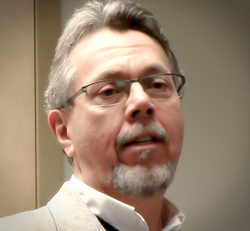Perhaps the ugly demeanor of our time is an outcome of these imperceptible changes in our economy. People are feeling the results of this shift but don’t have any way to understand or to articulate accurately what is driving the change. We’ve seen the future of employment and it is frightening. If we don’t alter our concept of work and of providing for the common good, then we may be facing a bleak world where an increasing number of American families are just scrapping by. Welcome to the contingent economy.
Nearly all the jobs created between 2005 and 2015 were contingent jobs, according to Brandon Busteed, Executive Director, Education and Workforce Development at Gallup. The data cited by Busteed is sobering:
Given this data, it is easy to see how millions of workers might be left behind to make do on part-time or temporary work that barely pays the bills. In this “contingent economy”, workers will be earning less because minimum wage or overtime pay won’t be guaranteed and benefits such as health care or retirement savings will become uncoupled from work with the employee left to fend for themselves. Just pause and think about this for a moment. Hundreds of thousands of “traditional jobs” with wages and benefits have been lost in the decade cited above while nearly all new jobs created during that time were alternate jobs providing no security. We begin to see a slow and nearly invisible transformation of work and an equally invisible decline in family income and security. This is especially troublesome for the 275,000 workers in the city of Milwaukee where the median wage is only $37,500 which is less than half that of a worker in Waukesha county. The city of Milwaukee is already home to 72% of the region’s poor and anything that reduces wages and income will only exacerbate an already difficult situation. The future of work becomes even more disconcerting when data from a Brookings report on the “New Economics of Jobs” is taken into account. This report shows that college graduates made up 37% of the 134 million people in the labor force but they garnered a full 71% of all new jobs gained between 2008 and 2017. And when looked at from the other side, we are forced to ask about the fate of those workers without a college degree. They make up two-thirds of the workforce but are shut out of nearly three-quarters of new jobs. Does this portend a future where a worker will need a college degree to win a job, but the job attained will be one that is temporary and without any benefits? The social contract on work has been broken. It used to be that if you worked hard, you would be rewarded with good pay and benefits, and with a job that lasted – sometimes - for a lifetime. Now, that may no longer be the case. Perhaps the ugly demeanor of our time is an outcome of these imperceptible changes in our economy. People are feeling the results of this shift but don’t have any way to understand or to articulate accurately what is driving the change. It is no wonder there is an undercurrent of rage and mistrust running through our country. But now that we are beginning to understand these new workforce and economic realities, it is time to stop and evaluate the value and policy implications. When nearly all new jobs are contingent jobs and workers are left on their own to secure minimum benefits, it is time to create a new social contract for employment; one that provides health care, child care, retirement and a wage floor as a prerequisite of a caring and civilized society. All of the benefits that we recognize in the world of work today were hard fought victories in the past by workers united for the common good. A united workforce changed the workplace dynamics before and can do so again. All we need do is organize. And if we don’t, we will have already seen our future.
2 Comments
Bonnee Lugauer
2/2/2018 01:01:03 pm
Another possible shift can be how various jobs are valued. Personal care givers always will be needed. Yet these kinds of jobs often are presented as "low level."
Reply
Eric Beam
2/3/2018 07:59:17 pm
Worker-owned companies are the solution (owned equally and exclusively by all the working workers of the company).
Reply
Your comment will be posted after it is approved.
Leave a Reply. |
AuthorMichael Soika has been a community activist for more than 30 years working on issues of social and economic justice. His work for justice is anchored by his spiritual formation first as a Catholic and now as a Quaker. Archives
June 2018
Categories |


 RSS Feed
RSS Feed